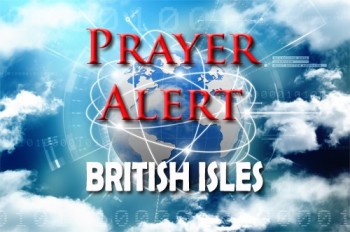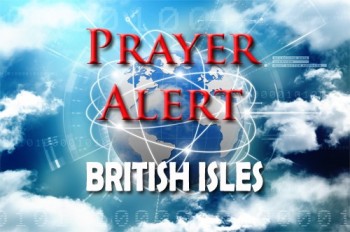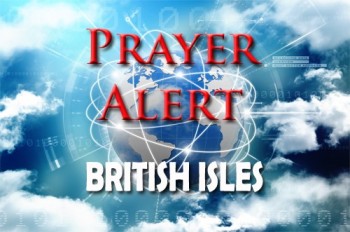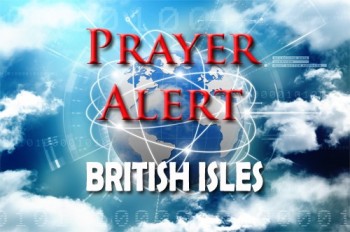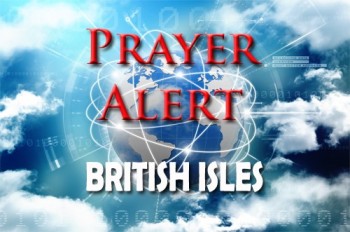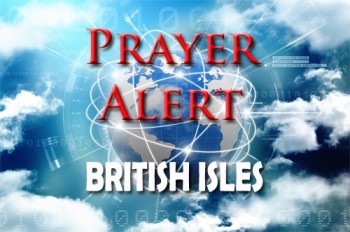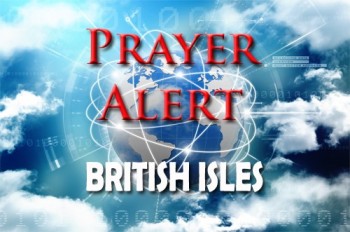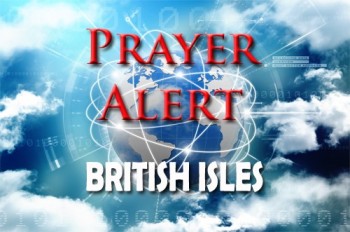Displaying items by tag: United Kingdom
Faith leaders and climate change
UK faith group representatives, in an open letter, have urged the Government to centre its economic recovery on the pressing need to reduce the impact of climate change. Signatories include members of the 'Faith for the Climate' network. The opening statements read, ‘Covid-19 has unexpectedly taught us a great deal. Amidst the fear and the grief for loved ones lost, many of us have found consolation in the dramatic reduction of pollution and the restoration of nature. Renewed delight in and contact with the natural world has the capacity to reduce our mental stress and nourish us spiritually. We have rediscovered our sense of how interconnected the world is. The very health and future of humanity depends on our ability to act together, not only with respect to pandemics but also in protecting our global ecosystem.’
'Jesus was black', says Stephen Cottrell
The new Archbishop of York, Stephen Cottrell, has spoken of his desire to advance racial equality in the Church of England. He said he wanted to see the same change happen for the BAME community as has happened with women, who in recent years have become bishops for the first time. He said, ‘One of the failings of the church has been a form of tokenism without addressing the deep systemic issues of exclusion and prejudice, Jesus was a black man, and was born into a persecuted group in an occupied country.’ He added, ‘Jesus would have joined the Black Lives Matter protests. The Church of England leadership is still too white, and I hope under my watch we'll see further changes on that.’
227,000 tenants at risk of eviction
Research by Shelter shows 227,000 private renters in England have fallen behind on their rent, often as a result of job losses during lockdown. A March moratorium on eviction cases ahead of the coronavirus lockdown stopped people becoming homeless during the crisis. But this ends on 24 August, and landlords can seek possession of properties in the courts. Under the current court system, anyone accruing rent arrears of eight weeks or more can be automatically evicted, in addition to the risk of being subjected to a Section 21 ‘no fault’ eviction: landlords can evict tenants at short notice without a specified reason. Shelter warned, ‘Unless the government acts to protect renters in financial coronavirus difficulty, judges will be powerless to stop them from losing their homes once the ban lifts. Pray for landlords to have compassion for their furloughed tenants.’
UK fishing rights in Brexit talks
Post-Brexit access to UK waters for EU fishermen is a major hurdle to a trade deal between the UK and Europe. Michel Barnier had a private dinner with UK’s Brexit negotiator, David Frost, at Downing Street on 8th July. It is believed they discussed UK’s fishing rights over a meal of halibut and asparagus. The meeting comes after it emerged Mr Barnier had told a House of Lords select committee in June that the bloc could water down its stance on fishing if the UK also agrees to compromise. The UK insists British fishing boats have priority as it pushes for a new scientific approach based on how many fish are in domestic waters. If both sides dig their heels in on their positions there will be no discussion on fisheries, and therefore no agreement on trade.
Criminal chat network cracked
A top-secret communications system used by criminals to trade drugs and guns has been ‘successfully penetrated’, says the National Crime Agency, which worked with forces across Europe on the UK's ‘biggest and most significant’ law-enforcement operation. Major crime figures were among over 800 Europe-wide arrests after messages on EncroChat were intercepted and decoded. Over two tonnes of drugs, several dozen guns, and £54m in suspect cash was seized after an investigation initiated and led by French and Dutch police which also involved Europol - the EU agency for law enforcement cooperation. Wil van Gemert, of Europol, told a press conference that the hacking of the network had allowed the ‘disruption of criminal activities including violent attacks, corruption, attempted murders and large-scale drug transports’. The operation lasted three months: 171 were arrested in the UK, including two law enforcement officers. See also the Europe article on the Netherlands.
Huawei and 5G networks
Boris Johnson is expected to draw up plans to phase out Huawei from Britain’s 5G phone networks now that US sanctions have undermined the Chinese telecoms equipment maker’s ability to supply the UK market with exactly what it promised. Digital secretary Oliver Dowden said that GCHQ can no longer guarantee Huawei’s security. Mr Dowden’s department has yet to deliver its conclusions to Mr Johnson, who has said he does not want the country to be ‘vulnerable to a high-risk state vendor’. Huawei has stated that it remains ‘open to discussions’. China's ambassador to the UK warned that if the UK got rid of Huawei it would send out a wider message about its openness to foreign investment. MPs are currently discussing the implications of a potential ban.
A room with a pew
Imagine being handed a key to an ancient church that is immersed in history and having the place to yourself for a whole weekend! This experience is now open to church campers or ‘champers’. Champing is a new trend in ‘spiritual tourism’ throughout the UK, where travellers have sleepovers in archaic buildings. First launched by the Churches Conservation Trust (CCT), which looks after over 300 redundant churches nationwide, it aims to offer a totally different visitor experience and also raise money to support the conservation of old places of worship. Champing churches are living time-capsules, with centuries of history to explore. Rugs are laid on stone floors and visitors sleep on mattresses. Portable lavatories and washbasins are available.
Five-year-old raises over £1 million
Five-year-old disabled Tony Hudgell finished his fundraising challenge on 30 June and raised over £1 million for the hospital that saved his life. He challenged himself to walk every day of June on his prosthetic legs with the aid of two walking sticks, to raise money for the NHS. He made such strides with his walking that he exceeded his distance target of ten kilometres. Tony was an abused baby whose legs were seriously damaged before he was taken into care. His adoptive parents took him to Evelina London Children’s Hospital, resulting in his having both of his legs amputated in 2017. His mother said, ‘We are proud of him for doing so well with his walking, while helping to make a difference to the lives of other children who need the care of Evelina London.’
House of prayer
There are many vital areas still needing prayer. The virus, the economic challenges, and fear do not take a holiday. Likewise the church, the 'house of prayer', cannot afford to ease up at this crucial time. We need to devote ourselves to pray with perseverance until we receive the answers and achieve the breakthroughs so desperately needed in all these areas. There has been an unprecedented outpouring of prayer in this nation and throughout the world. We cannot afford to slow down now. Please pray that the virus will be halted in its tracks and sent into reverse - 'thus far and no further' (Job 38:11); for our Government as it continues to grapple with huge decisions; for our health and social care services to cope well with the impact of the virus; and for the safety of police and all frontline emergency services, maintaining order and security.
Lockdown peaks and troughs
‘Looks like everyone in the UK is breaking the lockdown rules, then?’ said a person living in France in late May. In June, UK social media were ablaze with images of packed beaches and street parties. While we follow the developments of the pandemic in the UK, many of our conversations have included judgmental comments about other countries. Now a full local lockdown has had to be imposed in Leicester because of increased coronavirus cases; non-essential shops and most schools have been closed again. The loosening of restrictions for pubs and restaurants will also not take place there. See
